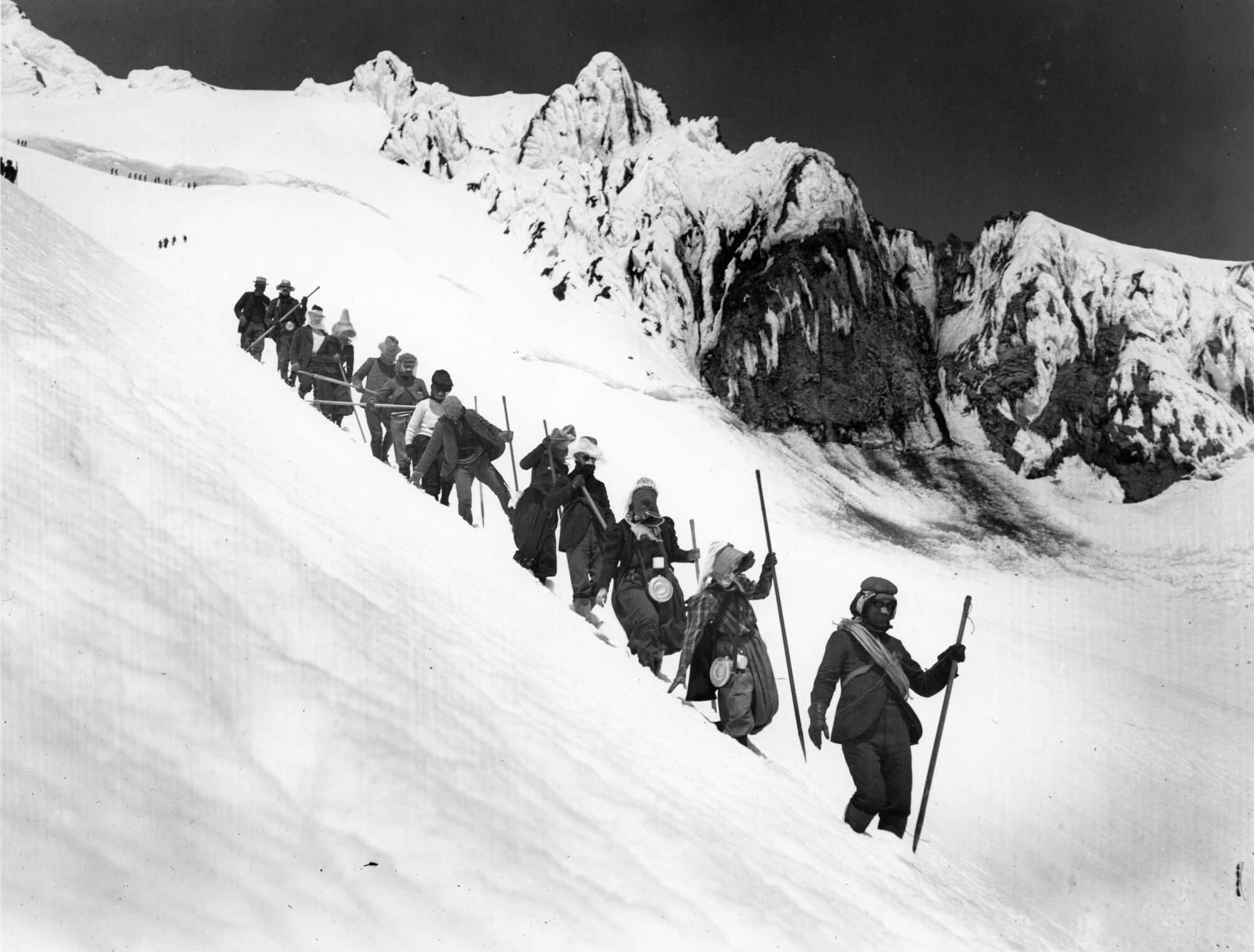Hometown: Rochester, New York.
When and how did you become involved with the Mazamas? A friend suggested we take Ski Mountaineering together. I liked the people, so I stayed.
What are your favorite climbs? As I rapped off Thielsen last year I SWORE it was the very last time, but dang! I put it on the schedule again for 2014.
What climbs/hikes are you most looking forward to this year? I’m going to share Baker and Rainier with Bruce Yatvin, and take some time for a few private climbs.
Best climbing memory: I recently climbed Kilimanjaro with several other Mazamas and friends. I am hoping to forget the last three hours up the Western Breach, but I will never forget the inside of the crater. The glaciers emerged from pure snow. We made first tracks as we walked up and touched them. I’ll never see the like again. The summit was anti-climactic.
Future climbing goals? Olympus has skunked me twice. Greg Willmarth is helping me plan a 2016 rematch.
Favorite piece of gear you won’t leave home without: My High Gear altimeter carabiner watch. It has BIG numbers.
Guiding principle/philosophy: There WILL be fun here.
Favorite leader treat? Home-baked goods.
Most influential book: Colin Fletcher’s The Complete Walker. I was 14.
Favorite quote: “I do NOT have to make this up.”
Words that best describe you: Most people remember my laugh.
Most treasured possessions: It must be the grand piano I barely play, because I’ve been moving it all over the world for 30 years.
Pet peeves: Cliques.
Person(s) most interested in meeting: Dr. Samuel Beckett.
Favorite vacation spot: The next one.
When you aren’t on the mountain, where are people likely to find you? Sunriver.
Hobbies other than hiking/climbing: Knitting, singing in Cathedral Choir.
Occupation: Purchasing manager for a global manufacturer.
In 2014 you led your second, all-women Basic Climbing Education Program (BCEP) group. Please tell us about the evolution of the group, the role you see it playing in the Mazamas, how it differs from your own BCEP experience, any unique challenges encountered by the group, and what you see as the future of the all-women BCEP group: I did not take BCEP. Right after 9/11, I realized my life at 43 had become too small, so I shook things up by joining an all-women’s group that trained together to do Mount St. Helens. I wouldn’t have done it if I thought I had to keep up with a bunch of young guys competing to go the fastest. Training was hard, but I got great advice from a female guide: “The summit never seems to get any closer; remember to look back and see how far you’ve come.”
I deliberately avoided the Mazamas because they had a rep among my climbing and hiking friends for being waaay Rambo. I learned by climbing with guides, which is very different than a Mazama climb. Then I took the Ski Mountaineering class, and I met great leaders who definitely did not fit that stereotype. Rather than take BCEP, I applied directly to ICS, and then to LD, with a goal to encourage women, middle-aged adults and other non-traditional types to try climbing.
Many women learn by connecting their emotions to the task, and they want to express their feelings. Some men, in turn, get weirded out by that, and it can be truly demoralizing when people are working at the edge of their comfort zones. I wanted to offer women a place where they could do totally badass stuff, and be OK sharing an emotional reaction. They also quickly realize there is no big strong man to carry the rope for them—pick it up! That goes a long way toward building the confidence we want our teammates to have.
In 2013, I finally got to lead a BCEP team, with Patrice Cook as my co-leader and mentor. Since an all-women’s team was good for me, I made the proposal to the Education committee and they supported giving it a try. We started with five women last year, and a dozen women volunteered as instructors. The students are all still friends, still climbing (on coed teams), are helping this year’s class and a couple are applying to ICS this fall.
In 2014 we had more women request the class than we could accept. But the point isn’t to get more women to request the team; it’s that the Mazamas want ALL of our BCEP grads to climb well, and stay active in the organization. If this team can give a group of students a stronger foundation to start their adventure with the Mazamas, then I’d like to keep leading it.



